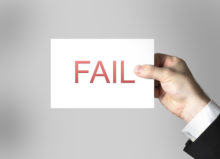All About Guardianship in Florida – Types, Establishing, Alternatives

Recently, a client asked for help with a family member who held a significant estate, including real property, bank accounts, and other assets. Unfortunately, the family member was suffering from mental incapacity.
As a result of the individual’s mental decline, fines were collecting on the real property because of county violations that were not being addressed. As you might imagine, these fines are only one type of problem that can arise when the mental state of a loved one begins to deteriorate. It is also possible that property taxes go unpaid, as well as insurance premiums and other regular costs.
Because this client’s family member had not created a power of attorney, the answer in this situation was to establish a legal guardianship.
Types of Guardianships
Perhaps the most common type of guardianship is for adults who suffer from dementia and other events of incapacity. While the adult may have a large estate, the adult needs another person to manage the estate for them. As further discussed below, it is possible for an adult to have sufficient capacity to handle some matters, but need help with other types of matters.
Another common type of guardianship is for persons under the age of 18 (minors). Minors may receive large amount of money by inheritance, as the result of a lawsuit, or in other ways. Nonetheless, Florida law provides that minors need another person to manage the money for them.
Florida law also permits a temporary guardianship to be established on an emergency basis. The reason for this type of guardianship relates to the time required to establish a guardianship. In Florida, guardianships typically require several weeks to establish. It is easy to imagine that an incapacitated individual may need more immediate help. In this situation, the Court may appoint a temporary guardian. The authority of a temporary guardian is limited to just a few months, thereby providing a solution to help the incapacitated individual while a permanent guardian is appointed.
Establishing a Guardianship
The process of establishing a guardianship requires a great deal of interaction with the local Court. There is no ‘automatic guardianship’ for an individual. Instead, the Court must enter appropriate Orders to grant guardianship authority.
First, the person seeking to be named as guardian (the ‘Petitioner’) files a Petition with the Court. The Petition includes information about the physical and mental condition of the alleged incapacitated individual (the ‘AIP’), as well as the AIP’s assets and liabilities. The Petitioner also files an Oath, promising to administer the guardianship estate according to the law, and an Application, describing the Petitioner’s education, work history, and other background information.
Once the initial paperwork is filed, the Court will appoint an attorney to protect the interests of the AIP. The attorney will meet with the AIP and attempt to inform the AIP about the guardianship proceeding.
The Court will also appoint three persons (often a doctor and two nurses) to serve as a medical examining committee. The function of the committee is to visit the AIP to determine whether the AIP lacks capacity to manage the AIP’s affairs.
After making its visit, the Committee reports back to the Court on its findings. The Committee may tell the Court that the AIP has no capacity, limited capacity, or full capacity.
Once these reports are submitted, a hearing is held. At the hearing, the AIP may present evidence to show that the AIP does not need a guardian. The Petitioner may present contrary evidence to show that the AIP does need a guardian. These hearings may take hours, as testimony, medical records, and other types of evidence are presented to the Court.
At the end of the hearing, the Court makes a determination whether the AIP has capacity. If the Court finds that the AIP needs a guardian, the Court may proceed to appoint a guardian. If there is an objection to the Petitioner serving as guardian, or if there is more than one person seeking to be named guardian, additional hearing time may be required to determine who will serve as guardian.
The Court may limit the guardian’s authority if the Court feels that the AIP has only limited incapacity. For example, the Court may enter an Order stating that the AIP does not have the capacity to enter into contracts or pursue legal actions, but that the AIP has the capacity to decide where to live.
After the guardianship is established, the new guardian must file reports with the Court. These reports include a summary of the bank accounts and other assets under the guardian’s control, as well as a report describing the care that the AIP will receive. Each year thereafter, the guardian must submit additional reports as to the AIP’s status and how the AIP’s assets are being used.
Alternatives to Guardianship
Because of the expense and time associated with establishing and maintaining a guardianship, it is often preferable to find another way to help incapacitated individuals. There are alternatives to guardianship, but they require action before incapacity begins.
Perhaps the optimal solution is for an individual to create a power of attorney before becoming incapacitated. With a power of attorney, an individual can authorize another individual to take care of financial or other matters.
For example, Harvey may sign a power of attorney authorizing his wife, Wilma, to make financial decisions for him. If Harvey were to become incapacitated later, Wilma would be able to handle tax, insurance, and other financial matters on behalf of Harvey without the cost and burden of establishing a guardianship.
Another common strategy to avoid guardianships is through the use of jointly-held bank accounts (and other jointly-held assets). If one of the co-owners on the account becomes incapacitated, the other co-owner can still access and manage the account.
Although co-ownership is common, it is not preferred. One reason is because the co-owner on the account may have a creditor problem, resulting in the loss of a portion of the account to creditors. Another concern is if the co-owner decides not to help the incapacitated individual – this may appear unlikely, but it does happen.
For minors, there are special types of accounts that may be created that do not require the legal expense of a guardianship.


















